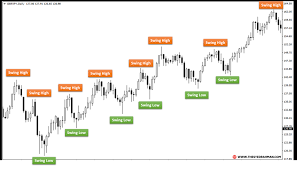Stock Markets Crash Today : In an alarming turn of events, stock markets across the globe have nosedived following the sudden implementation of steep tariffs by the United States. This latest move has sent shockwaves through the financial ecosystem, triggering widespread investor panic, wealth erosion, and raising fears of a prolonged global economic slowdown. As nations respond with retaliatory tariffs and investors scramble to mitigate losses, analysts are calling this the most significant global market downturn since the COVID-19 pandemic.
The Spark: U.S. Tariffs Ignite Global Panic – Stock Markets Crash Today
President Donald Trump’s latest economic maneuver — a broad package of new tariffs — has become the epicenter of the current market chaos. The U.S. has imposed a 25% tariff on all imports from Mexico and Canada and a 10% tariff on Chinese goods. These tariffs are intended to counteract what the administration describes as long-standing trade imbalances and to protect American industries. However, the global reaction has been swift and severe.
In just two trading sessions, U.S. markets lost over $6.6 trillion in value. The Dow Jones Industrial Average plunged 5.42% to close at $383.22. The S&P 500 fell by 5.75%, landing at $505.28, while the tech-heavy NASDAQ and the QQQ ETF tumbled by 6.09% to $422.67. Investors and analysts are now labeling this moment as a potential prelude to a full-blown recession.
Read More – AI in Stock Market Trading: Revolutionizing Investment Strategies
Asia Share Market Reacts: Steep Declines Across Major Economies
Asia’s markets were among the first to reflect the U.S. tariff tremors:
- Japan’s Nikkei 225 dropped a dramatic 6%, prompting automatic circuit breakers to halt trading.
- Hong Kong’s Hang Seng Index saw a similar drop, losing nearly 7% of its value within hours.
- China, not to be outdone, responded with a countermeasure — a 34% tariff on all American imports. This tit-for-tat move has heightened fears of a full-scale trade war.
The Chinese yuan also weakened significantly against the U.S. dollar, sparking concerns of competitive currency devaluation.
Australia Share market : Billions Wiped Off in Hours
The Australian stock market opened to a bloodbath, with the ASX 200 index plummeting 6.3% and wiping off $160 billion in market capitalization. The index fell to a 15-month low of 7,196.9 points. Meanwhile, the Australian dollar slipped below the 60 U.S. cent mark, a level not seen in five years. This dual blow of falling equity and currency has left the Australian economy extremely vulnerable to external shocks.
Read more – Reciprocal Tariffs and Their Impact on Global Trade: A Deep Dive into U.S. Trade Policy in 2025
India: Sudden Wealth Erosion – Stock Markets Crash Today
In India, the Sensex plunged more than 700 points in intraday trading, eventually closing down 1.3% at 76,294. The Nifty 50 followed suit, ending the session at 23,072 — a 310-point or 1.3% drop. Investors lost nearly ₹5 lakh crore in market wealth in a single trading session. Sectors like IT, metals, and auto bore the brunt of the selloff.
Europe Not Spared
European markets followed the same dismal pattern:
- The pan-European STOXX 600 dipped by 0.2%, with major regional indices like the FTSE 100 and DAX also reporting losses.
- Investor sentiment across the continent remains subdued as fears of economic contraction and inflation surge in the wake of protectionist policies.
The European Union has also indicated that it may introduce retaliatory tariffs on American goods, raising concerns of an all-out trade war that could severely disrupt supply chains and industrial production.
Investor Sentiment: A Volatile Mix of Fear and Uncertainty
Volatility indicators like the VIX have soared to levels not seen since early 2020. The fear index reflects widespread investor anxiety and the potential for further market deterioration. Many investors have started moving assets into traditionally safer investments like gold and U.S. Treasury bonds.
Meanwhile, institutional investors are adopting a “wait-and-watch” approach, with several hedge funds reducing exposure to equities and reallocating toward fixed-income and commodities. Financial analysts warn that unless there’s a swift rollback or diplomatic negotiation, the global economy could be heading toward a major recession.
Global Policy Responses and Economic Forecasts
- The Federal Reserve is under immense pressure to respond, though rate cuts may not suffice to stabilize investor confidence.
- China’s central bank has hinted at potential fiscal stimulus to cushion the blow from U.S. tariffs.
- India may also introduce supportive measures like easing foreign investment rules or offering tax relief to industries hit hardest.
International bodies like the IMF and World Bank have revised their growth projections downward and are calling for multilateral cooperation to de-escalate tensions.
Conclusion: A Call for Stability and Cooperation (Global Stock Markets Crash)
This latest market meltdown is not just a reflection of financial panic, but also a glaring signal of the fragility of global economic interdependence. The ripple effects of one country’s policies are now felt across every corner of the world. What the markets need now more than ever is clarity, stability, and a recommitment to open, fair trade practices.
If these escalating trade tensions continue unchecked, we may be staring down a prolonged bear market and a deep global recession.
Disclaimer:
This article is intended for informational purposes only. It does not constitute financial advice or investment recommendations. Always consult with a licensed financial advisor before making any investment decisions. Tha given Figers may very due to Market High Volatility .






